Politics & Security
INTERVIEW | Steve Bannon: Trump-Kim Hanoi Summit Not A Failure, But A Process
Published
5 years agoon
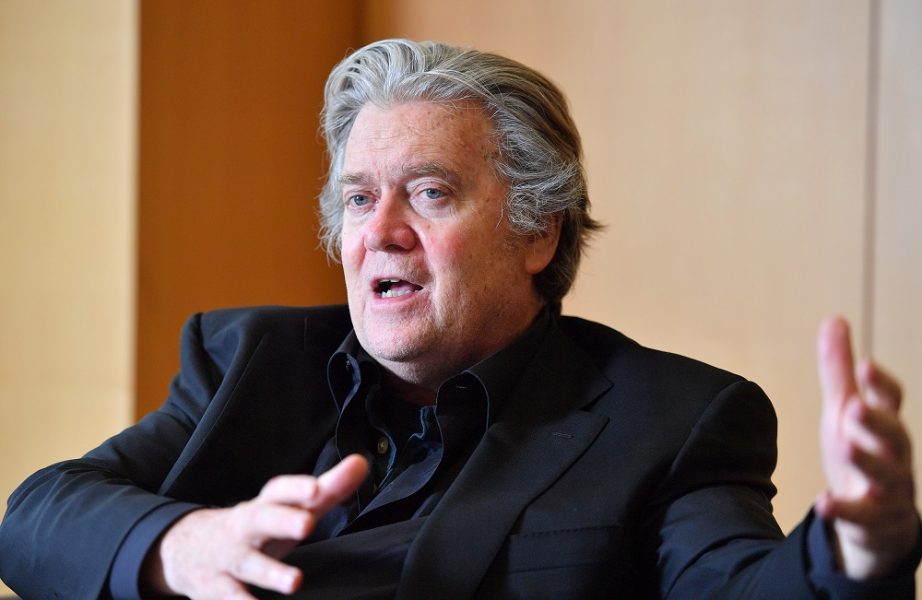
(First of Three Parts)
In an exclusive interview with The Sankei Shimbun and JAPAN Forward on Wednesday, March 6, Steve Bannon, former chief strategic advisor to United States President Donald Trump, spoke in wide spheres on the 2020 presidential election, U.S. domestic politics, and international relations, including the increasing threat from China.
In this first installment, Bannon assesses the summit between the United States and the Democratic People’s Republic of Korea in Hanoi, including the issue of Japanese victims abducted by the DPRK.
The second installment begins with China's Huawei technology company, which Bannon describes as a front organization of the Chinese People’s Liberation Army. He emphasizes that the international community should stop the company before it completes worldwide installation of its 5G technology, which will enable the PLA to control the internet.
The third and final installment concludes with his views looking toward the 2020 presidential election, which he confidently foresees Trump winning, though the President is on the hot seat right now with the investigation into the alleged Russian intervention in the 2016 election.
The following are excerpts from the interview.
No agreement was reached between the U.S. and North Korea at the summit in Hanoi. What do you think of that?
Listen, I think that the President said it’s better to do it right than to do it fast. We have to see where we’ve come in this process so far. Remember, this journey started for President [Donald] Trump at the summit with Prime Minister [Shinzo] Abe in Mar-a-Lago, when North Korea’s Chairman Kim [Jong Un] launched a ballistic missile test towards Japan to intimidate Prime Minister Abe and President Trump. And they immediately responded.
There’s a real bonding between the two. That missile was sent off right in the middle of dinner to disrupt it, and to send a signal to Abe and the Japanese people.
And then we did a joint communiqué right there at the table. We worked on a joint communiqué, put it out. And then Trump and Abe held a late night press conference and Abe addressed the Japanese people. It was Saturday morning here [in Japan, but] midnight or 1:00 in the morning in Mar-a-Lago.
So, that’s where this started. And over that summer there was “Little Rocket Man” and “Fury” and much hot talking. Look at the journey from where we’ve come. We’ve had two summits [with North Korea] and we’re moving the ball down.
President Trump laid out an incredibly ambitious a program. Not just the denuclearization — that means all facilities, not just the ones that people know about, but the other secret ones — all facilities for the production of plutonium and nuclear weapons. All warheads, all missiles including medium range and shorter missiles. And, in addition, [U.S. National Security Advisor John] Bolton on Sunday added two more things. He said it included chemical and biological weapons.
So, those are all weapons of mass destruction. Now, he (President Trump) offered a pretty big incentive to basically bring North Korea into the family of nations economically. People forget and people in the United States don’t realize that the trade deficit the U.S. has with South Korea is greater than the entire economy of North Korea.
North Korea I think would only be one third the size of the smallest state in the U.S. as far as economic activity goes, which I think would be Vermont.
What Trump’s doing, if you look at the process, he’s personally engaged. And he understands that North Korea is a vassal state of China, but he’s very engaged in bringing this to a resolution that brings peace to the region, peace to the nation of Japan, and brings North Korea into the modern world.
And he’s invested a tremendous amount of capital in this, and he’s going to be relentless. Just Tuesday, March 5, immediately after [the summit] he de-escalated the [joint South Korea-U.S. military] exercises.
And as a former naval officer, I used to participate in those exercises, oftentimes along with the Self-Defense Force of Japan. But he de-escalated those from war games down to region exercises. [U.S. Secretary of State] Mike Pompeo gave a press conference on March 5 and said, “Within two weeks I can be in the capital of North Korea working on this.”
So I think you see that for Trump it’s the “art of the deal.” And he’s going to be relentless. But, as Pompeo said, “All nuclear weapons have to come out of North Korea.”
So, I totally disagree with people that think Hanoi was a failure. It’s a process. Remember, [the election of] Trump was a reaction to the failures of the American elite. It’s not Trump that got us into this situation.
The geniuses in the foreign policy arena, both Republican and Democrat, looked the other way on North Korea for 20 years. And we ended up with 8 to 12 warheads — nuclear, plutonium — they can weaponize the plutonium. Trump was from Day One engaged in this, and, I think, in an appropriate way.
I think that people particularly in Japan should look at him as somebody who’s really engaged in bringing lasting peace to this region and is going to move Heaven and Earth to do that.
In the negotiations, what is the bottom line for the U.S. to be able to make an agreement with the DPRK?
I think President Trump stated it, and it’s why he walked away. They had the lunch table all set. As soon as Trump realized that total denuclearization wasn’t happening, he walked away. Even though Kim was prepared to give up the facility everyone knows about and made a big deal about that, there are many other things they have, and we let them know that we know.
I think that people in Japan or the media in Japan got concerned when we went from confrontation to engagement. Trump is a confrontational guy.
What confrontation got us was a North Korea with 8 to 12 nuclear weapons, according to open source media. And the ability to make more. Trump is absolutely adamant, and I think his bottom line is exactly what he says.
And now we know from [National Security Advisor] Bolton that it’s been increasing. It’s not just total denuclearization of their ability to make weapons or weaponize plutonium. It’s also that you’ve got to get rid of all the missiles, you’ve got to get rid of all the warheads, and now we’ve added, according to Bolton, chemical and biological weapons.
So all these weapons of mass destruction — I think that’s a pretty big ask. There’s obviously trust issues, right? The North Koreans understand that if they give these up, they know, they look at other countries that have denuclearized like Libya and Serbia, they see what the situation is there, so, I think President Trump is in a trust-building exercise.
And people just ought to be very thankful that we’re in an active and ongoing negotiation. It’s not going to be easy, but if you want something negotiated for you, Trump is the guy.
What is the next step? Did President Trump mention any agreements or negotiations in the future?
I think you see it. The next step was [Secretary of State] Pompeo. They’re going to turn it over to the next level down, or several levels down. Then Pompeo said, hey, I’m prepared to go to the capital of North Korea in two weeks and start to sit down and have meaningful discussions about how we get this back on track, or how we start to rectify this.
But he also said, the only way we’re going is they (North Koreans) have to understand this is all about getting all nuclear weapons out of North Korea. So I think we’ve have a very high bar, but I assume that we’re going to see continued dialogue. And we’re going to have to see how this plays out.
President Trump is incredibly engaged in this. He’s got a lot of political capital on this.
He’s spending a lot of time focused on this. And I think people in Japan ought to take comfort from the fact it’s one of the most important things in his administration. China and North Korea issues are two-thirds or 70% of the most important things he’s working on. And I think that ought to give people in Japan a high level of comfort that the President of the United States is that engaged with peace in the Northwest Pacific.
The Sankei Shimbun had an interview with you in 2017, where you mentioned the U.S. should put pressure on China to crack down on the situation in North Korea. Do you still have the same idea?
One hundred percent. I think North Korea is a vassal state of China. There’s no way they have these nuclear weapons, no way they have the missile systems they have, the technology, unless China’s somehow involved.
Also — I think you saw this from Kim before he had the first summit in Singapore — he took the armored train, his first trip out of the country, and he sees Xi. He’s sitting there with his notebook, he’s writing notes down. Xi is talking and he’s taking notes. North Korea is a vassal state of China.
What China uses North Korea for with these nuclear weapons, is to keep Japan and the United States off of their back. There’s no doubt about that.
I was always adamant when I was in the White House, and now that I’m a civilian, I don’t speak for the White House — I just speak for myself — but China has got to be held accountable. And I think that President Trump and [Secretary] Pompeo are doing this because China is part of the problem here. And they should be accountable for North Korea.
Do you mind that China makes North Korea a buffer zone between Japan, South Korea, and China?
I don’t mind having a buffer zone. What I mind is having nuclear weapons and chemical weapons and biological weapons in that buffer zone. If they want to use it as a buffer zone, I don’t think anybody has a problem with that, but that’s not what they have it for.
What they have it for is that they’ve allowed the North Koreans nuclear weapons — and it was THEY that allowed the North Koreans. It wasn’t the West’s responsibility. They are a client state of China. They can’t exist without China, without Chinese fuel, Chinese food. That’s what feeds North Korea. What China has allowed is for Kim and that rogue regime to essentially be weaponized.
Could you share your thought for helping gain the release of the Japanese abductees?
Number one is, I think it was reported that President Trump brought up the abduction issue with North Korea. Remember, President Trump met with the families when seeing Prime Minister Abe last time. President Trump really gets engaged and my understanding from the press reports is that he brought up parts of this in the discussions. And it’s a big part of the discussion with North Korea. I can tell you President Trump’s a kind guy with a big heart.
That photo of him is one of the most powerful photos in his entire administration — he’s sitting there with the families, and they’ve got the pictures of the abducted people. I assume by reading what I see in the press that this is a big part, or at least an important part, of the negotiations that are going on.
Do you have any advice to the Japanese government?
I’m not in the business of giving advice to governments, but countries like North Korea only respect strength and resolve. And I think that’s what you have so far in Prime Minister Abe. I think one of the reasons is that Abe is highly regarded around the world, and I think one of the reasons that President Trump likes Prime Minister Abe so much is that the Prime Minister is a fighter. He’s a fighter and he won’t back down. And I think that a situation like the abductions is a terrible situation, but that’s where you want a fighter.
And I think that it is quite brilliant that Prime Minister Abe introduced President Trump to the families of Japanese abducted people. My understanding and reading the press accounts is that the abduction issue was brought up and discussed [at the Trump-Kim meeting] and so I think it’s very powerful.
My only recommendation is that when you deal with North Korea, when you deal with people of China and the Chinese radicals like President Xi and that kind of cadres, you need to show tremendous resolve. You cannot show any chance of backing off from what your objective is.
(To be continued)
(Click here to read the related article in Japanese.)
Interviewers: Hiroyuki Kano, Kazuyuki Sakamoto, and Mizuki Okada, The Sankei Shimbun Foreign News Department
You may like
-


Trump 2.0: What Would It Mean for Japan
-


Would Trump Back in the White House Be Dangerous for Japan?
-


Predictions 2024: Taking On 5 International Trends Testing Japan in the New Year
-


The Americans Insist on Talking to China – But Maybe We Should Keep Score
-


Inviting Taiwan to RIMPAC? Best to Consider the Fine Print
-


Quad Initiatives Must Ensure Totalitarian Tech Does Not Dominate Next-Gen Standards

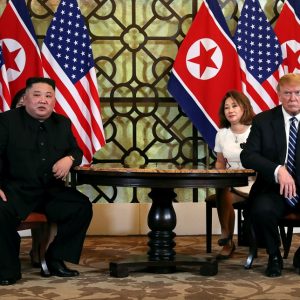

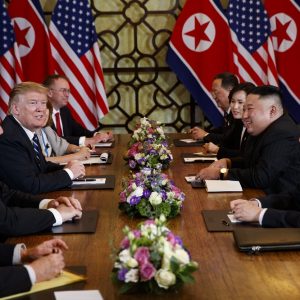

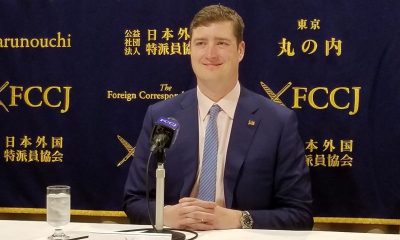

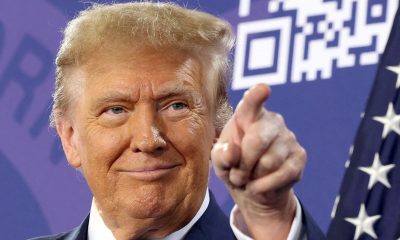

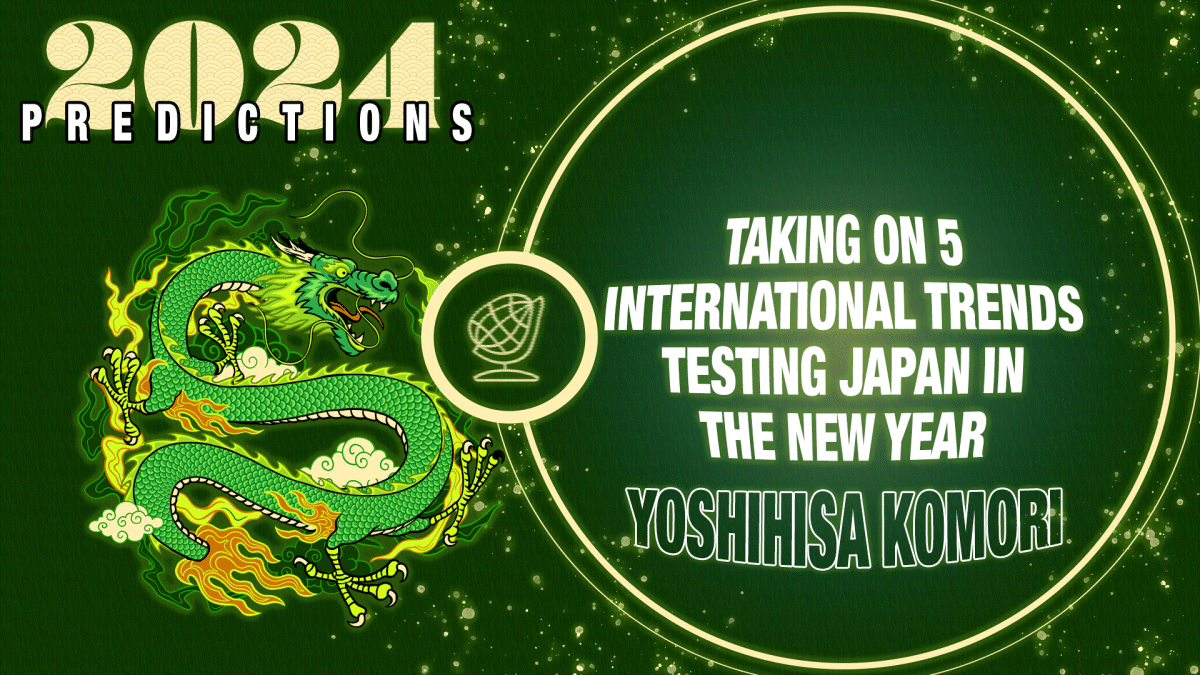
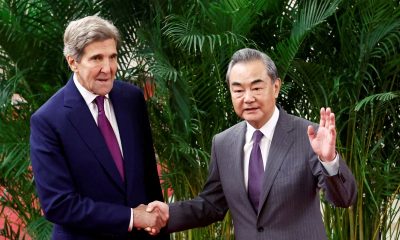

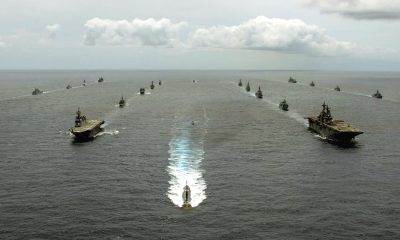

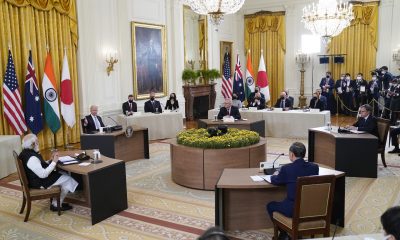

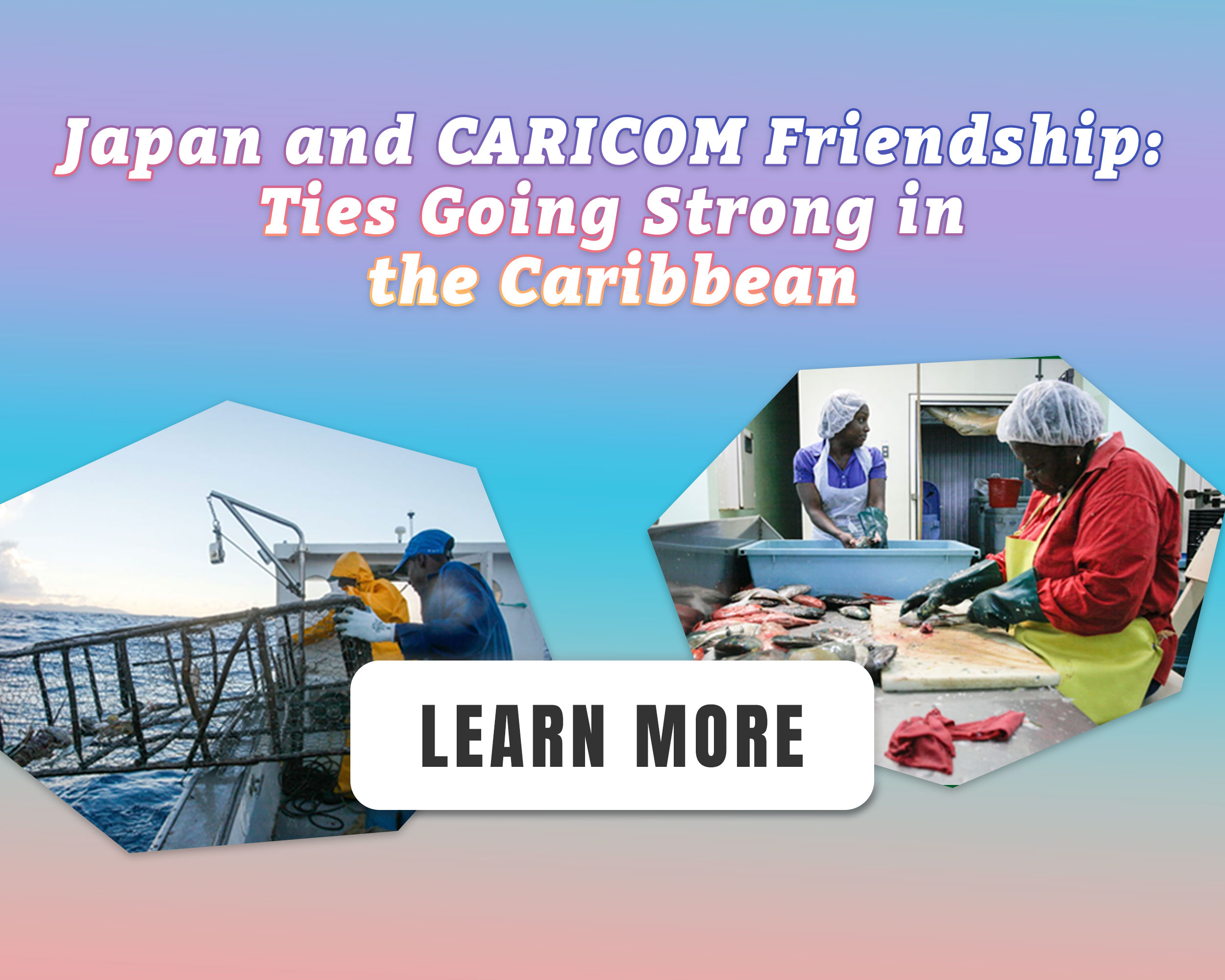
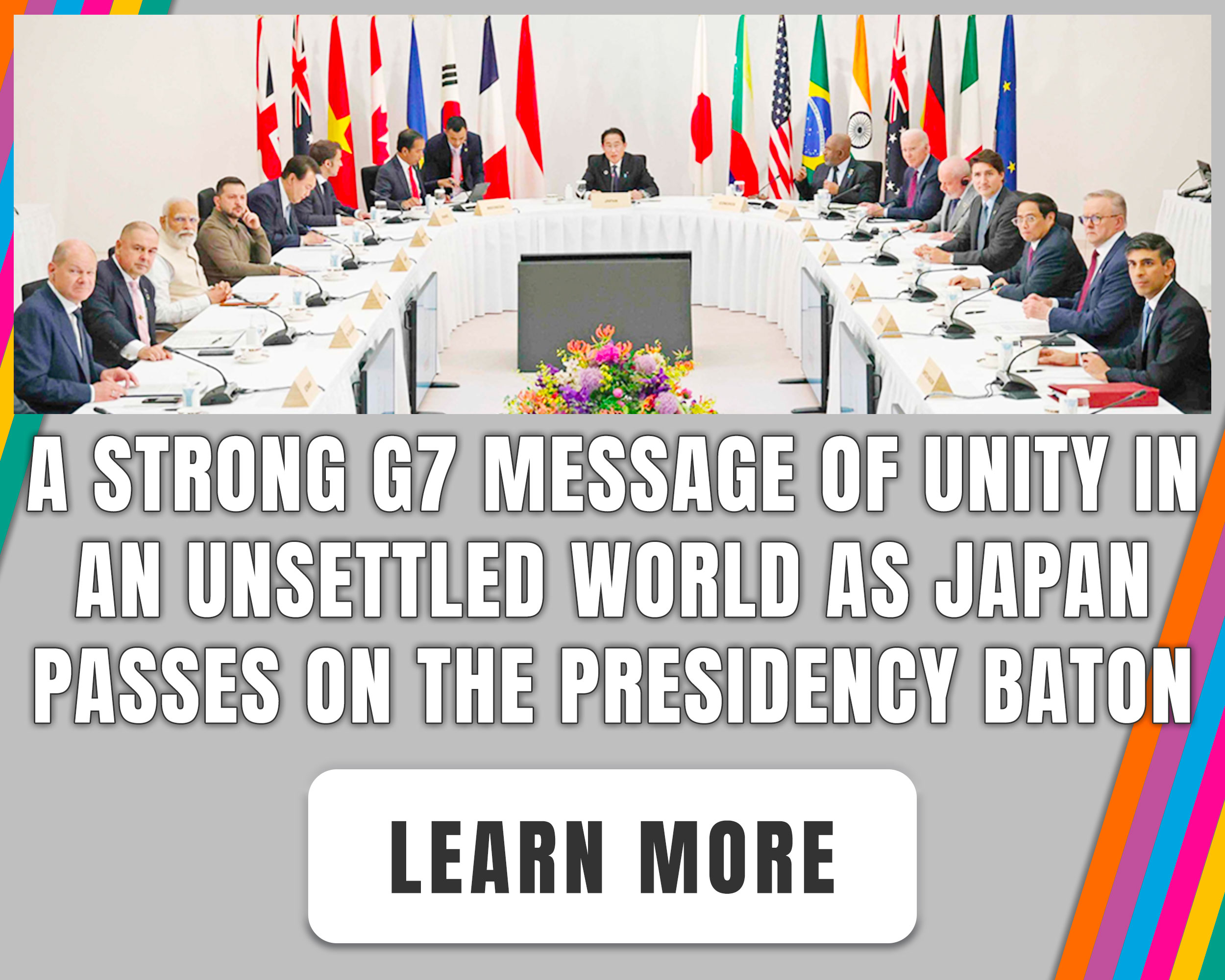
You must be logged in to post a comment Login